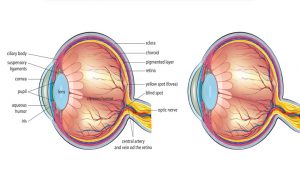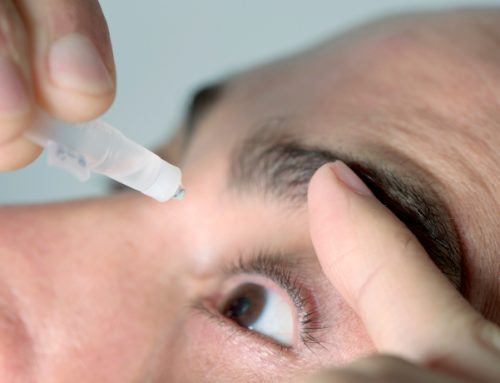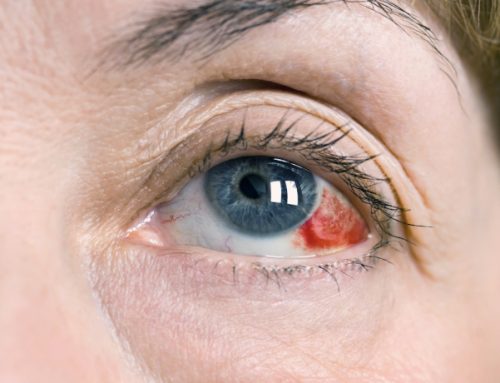How Complex is The Human Eye
 The human eye is sometimes referred to as the most complex organ in our body. This is quite amazing for something so small and when compared to other important organs like the heart or liver. However, if you consider what the eye is doing and how it does it, perhaps the reference is correct.
The human eye is sometimes referred to as the most complex organ in our body. This is quite amazing for something so small and when compared to other important organs like the heart or liver. However, if you consider what the eye is doing and how it does it, perhaps the reference is correct.
How The Eye Works
The Human Eye is very similar to a digital camera from focusing to light and lenses. Light is primarily focused on the cornea. The cornea is the clear front surface of the eye that acts like a camera lens. The iris of the eye is like the diaphragm of a camera. It controls the amount of light that actually reaches the back of the eye. The iris automatically adjusts and changes the size of the pupil (aperture) to control the light. The Crystalline lens is located directly behind the pupil and it continues to further focus the light through a process called accommodation. Accommodation occurs through the crystalline lens by helping the eye to automatically focus on objects like the autofocus of a camera lens. The light that is focused by the cornea and crystalline lens then reaches the retina. The retina is the light-sensitive inner lining of the back of the eye. It acts like an electronic image sensor of a digital camera and converts optical images into electronic signals. Then, the optic nerve transmits the signals to the visual cortex. The visual cortex is the part of the brain the controls our sense of sight.
Take Care of Your Eyes
Just like you take care of the camera lens and try not to scratch the lens and put it into harms way, treat your eyes in the same manner. The Human Eye is a strong part of our body, but it still needs to be cared for with annual eye exams. If you need to schedule your eye exam, call Westside Eye Clinic at 504.347.8434 and we will help you take care of and maintain good eye health.
The content on this blog is not intended to be a substitute for professional medical advice, diagnosis, or treatment. Always seek the advice of qualified health providers with questions you may have regarding medical conditions.





